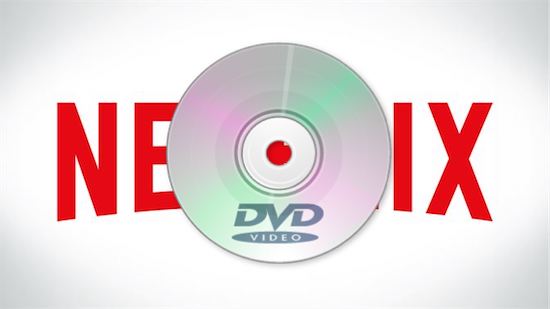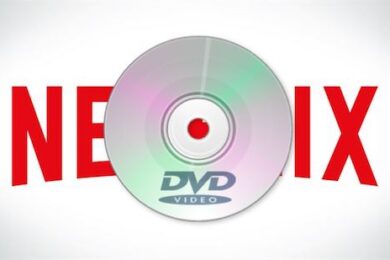At last night’s Emmy Awards, honours were split evenly between the two giants of the contemporary television, with Netflix and HBO scooping 23 prizes each, and Netflix heading the initial nominees list with a record 112 nods. The streaming service and production house won prizes for programmes including The Crown, Seven Seconds and Godless. Yet as anyone who has spent a fruitless night scrolling through the Netflix menu in a desperate hunt for something, anything, decent to watch, the Emmy Awards sweep gives something of a false impression as to its status as a quality broadcaster. It is, as ever with American awards ceremony, hopelessly English-language-centric – when I lived in Paris, it was noticeable that DVD shops still did a roaring change, largely in part because the French Netflix service is lamentably poor.
Is the wider picture any more rosy? Despite a booming subscriber and profitability, the company still writes off tens of millions of dollars in abandoned projects. It’s modus operandi is to buy up swathes of shows from yesteryear on the cheap, while making its own often dubious productions to run alongside the nostalgic content. It’s a lowest common denominator approach the means it apparently can’t get enough of Adam Sandler, or Ricky Gervais, who it paid a reported $40m for two standup specials. How sustainable that business model is is a debate for Netflix and Moody’s Corporation, but the cliche that it has something for everyone only contains a relative truth with finite durability. What at first looks like an almost limitless buffet of choice soon becomes like a newsagents’ confectionery selection: there’s plenty of chocolate on offer but you wouldn’t want a different bar for breakfast, lunch and dinner.
There’s a pervading myth that’s sprung up in the age of streaming that TV has somehow usurped film because the quality of writing is supposedly better, and yet the three best things I’ve seen on a screen this year are Ruben Östlund’s wickedly funny art satire The Square, Pawel Pawlikowski’s award-winning Cold War and first time director Bertrand Mandico’s gender bending dystopian fantasy Les Garçons Sauvages, and all three were enjoyed at the cinema. Thankfully none of them were given the chance to endlessly repeat and become embarrassing parodies of themselves, which accounts for about 99% of the shows I’ve watched on Netflix. You can have too much of a good thing – which in the latter’s case almost always becomes a bad thing.
Netflix’s first major endeavour, House of Cards, gave us a pulsating first season and jumped the shark with the help of Pussy Riot in the third. Their series nearly always follow the same law of diminishing returns. Stranger Things was a breath of fresh air for the first season; the second began to smell like Bob’s fetid corpse by its conclusion. Experimental shows such as The OA should probably be applauded if you can cope with obtuse misadventures with embarrassing interjections of interpretive dance that get more Emo with each episode.
While if it’s documentaries you crave then you’re all set, provided you’re fixated on South American drug lords. And drama wise, as anyone who sat through the risible The Circle will know, Netflix also makes terrible films a lot of the time, despite the star draws of Tom Hanks, Emma Watson and John Boyega in that instance. Three recent sci-fi pictures, including Bright with Will Smith, failed to score more than 27% on Rotten Tomatoes.
There are of course other streaming services who do things differently, from MUBI to the BFI Player. Yet there’s arguably a physical format that’s proving surprisingly durable. Although the more upmarket streaming services are starting to come through with extensive archives, there are still literally thousands of wonderful films by seminal filmmakers that you just can’t see unless you seek out a physical optical disc and get it mailed to you in the post. James Toth recently made a spirited case for compact discs in the face of music’s modern day ubiquity on this very website, but the case for the DVD is arguably even stronger. So many of the pictures you might potentially want to watch are not readily available anywhere at the push of a button in the same way music is. What’s more, the sleek and elegant packaging is often far more alluring than the infernal jewel case.
This year I’ve discovered you can’t stream John Carpenter, Francois Truffaut or Michael Haneke anywhere, that Béla Tarr really should be watched on the biggest screen you can find and not a laptop, and that Jacques Tati is even more bafflingly unfunny than I’d previously assumed. None of the many films I’ve bought could be found anywhere online, although some have appeared since. But why wait and hope when a film can almost as easily be snapped up for a song at online shops and then be with you in just a few days? Life is short and there are too many great films to watch, and far more productive ways of spending one’s time than sitting through three series of Narcos.
As for series box sets, I enjoy binge watching a well-made TV show as much as the next person. Right now I’m deep into Rainer Werner Fassbinder’s sprawling 15-hour mini-series Berlin Alexanderplatz. As great as the first season is, there’s unlikely to be a second; Alfred Döblin who wrote the 1929 novel dubbed the "German Ulysses" has long since expired, and Fassbinder, the wunderkind of new German cinema, died of a drug overdose in 1982. But still, the existing series is a thing of sepia-toned magnitude that sometimes feels more like an act of endurance than a pleasurable watching experience, and you do wonder how so many Germans stayed glued to their boxes back in 1980. Browbeaten by the bleak storyline and bewildered by the Brechtian detachment the direction imbues, it’s a tough sell even for a Fassbinder obsessive like myself, and yet each episode stays with you for days. It feels weighty and significant and the apotheosis of an immense artistic vision, with the antihero Franz Biberkopf somehow inveigling his way into our affections despite being a repellent brut who murdered his wife.
Berlin Alexanderplatz is often referred to as Fassbinder’s masterpiece and it is regarded as a high-water mark in German television. The original 16mm film was digitally restored in 2006 using an ARRI scanner with each frame enhanced from the original colour and manually checked for scratches and tears, while RWF’s cinematographer, Xaver Schwarzenberger, was hired to supervise the restoration of over 1.4 million frames. The new 35mm negative copy was finally fit for movie theatres, which it wouldn’t have been in its original format – an oversight that wasn’t uncommon in the analogue age. How I know all this is because I watched the DVD extra feature about the restoration, and very enlightening it was too. You’ll not see anything like Berlin Alexanderplatz – or its extras – unless you’re prepared to hunt down the DVD. The company that brought the series back to life, Second Sight, also reissued another classic German series, Heimat – all three-and-a-half-thousand minutes of it. Other companies reviving old titles and raiding the vaults of the majors to satisfy the worldwide cinephile community include Masters of Cinema (now in collaboration with film distributors Eureka!), cult horror specialists Arrow Video and the similarly monikered Second Run, who’s new release is Miloš Forman’s Cerný Petr, is one of the essential movies of the Czech New Wave.
These films are chosen for their artistic merits. In comparison, streaming seems to deliberately strip films of all context, hides the name of the director, gives you the option to skip the intro and minimises the credits in a ruse to make you consume more. If you find a DVD with, say, Artificial Eye on the spine whilst rifling through the shelves of a charity shop, you can expect to find something worth watching when you get it home even if you don’t recognise the name of the film or its director. To equate highbrow with good and lowbrow with bad would make for a monochrome and drab existence, and nobody wants to live in a world of absolutes. I’m not saying you won’t find artistry within the myriad titles on Netflix, but to the company that streams it it’s just another piece of content added to more content to attract more streams of revenue. It certainly never felt that automated or impersonal hiring a film from the DVD rental shop at the end of the road that’s now been turned into a Nandos.



